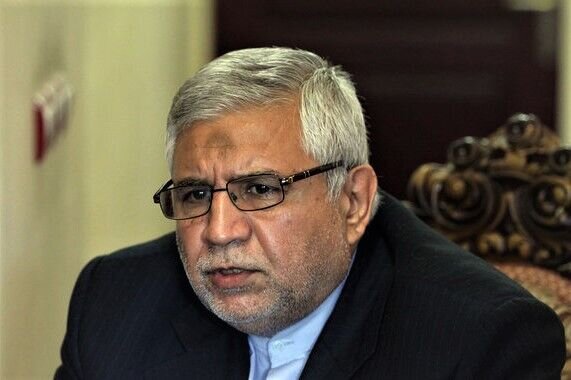Former envoy lauds foreign policy of Raisi administration

TEHRAN- Mohsen Pakaeen, the former Iranian ambassador to Azerbaijan, has hailed the achievements of Iran’s diplomatic apparatus in the Raisi administration, saying it has been organized, smart and in line with the maximum interests and national security of the Iranian people.
Speaking with IRNA on Saturday, he noted that one of the advantages of the Raisi administration’s foreign policy is to strengthen bilateral relations with friendly countries.
He also said that Iranian president knows well how to solve bilateral issues with certain countries.
Pakaeen averred that the improvement in international and multilateral relations requires having good bilateral relations with different countries. “Proper multilateral relations entail the bilateral relations of countries with each other in such a way that sometimes inappropriate relations with one country can lead to disruption in multilateral relations.”
“For example, considering the mechanism of membership in the Shanghai Cooperation Organization (SCO), which is based on the collective vote and the consensus of all members, Iran did not have a good relationship with Tajikistan for a period of time, which led to some issues for Iran’s membership,” the former diplomat stated.
“Therefore, focusing on strengthening Iran’s bilateral relations with different countries is considered one of the smart measures in the foreign policy of the 13th administration,” he continued.
“The second point is to focus on the Eastern (world). This term has two interpretations. First, the geographical east means the countries that are in the eastern neighborhood of Iran in Asia, and the second is the countries of the political east, which means countries that are against the unilateralism of the United States in the international order,” he pointed out.
The former envoy stated that pursuing the policy of prioritizing ties with the East has resulted in strengthening multilateralism at international level.
He further said that “in addition, taking a serious look at the Eurasian region is another feature of the 13th administration’s foreign policy. The Eurasian region includes countries that are either Asian or part of their land is located in Europe.”
Pakaeen clarified that “Tehran views the deepening of relations with China and Russia in this regard, which has led to the signing of long-term cooperation documents with these two countries in the 13th administration.”
Alongside these steps, he said talks to revive the Joint Comprehensive Plan of Action (JCPOA) with Western sides to lift sanctions on the Islamic Republic are still underway.
“All such efforts are done despite all the renegades and procrastinations of the other side, but Iran has still lived up to its obligations. Tehran has not left the negotiation table. Rather, it continues to talk with foreign parties in order to secure national interests,” he added.
Additionally, he said that Iran has repeatedly announced that as the only party that has adhered to its JCPOA obligations, it welcomes the responsible return of the United States and other parties to the JCPOA and will not allow the Americans to use the negotiating table as a tool.
Pointing to other achievements of the Raisi administration in West Asia, Pakaeen said Iran has made brilliant accomplishments in the region including the visit of President Raisi to Syria after 12 years, the normalization of Iran’s relations with Saudi Arabia and some other countries.
Given the role of Iran in boosting the resistance front in the region, he noted that Iran’s regional achievements have strengthened the resistance front in the region so that it is viewed that the Zionist regime is isolated not only in the region but in the world.
“You can see that today the military actions against the Palestinians by the forces of the Zionist regime have failed and that they are witnessing widespread and continuous protests inside the occupied territories due to the extremist policies of the Netanyahu government, settlement constructions and violation of the privacy of Al-Aqsa Mosque,” he added.
Pakaeen concluded that based on the above-mentioned points, the foreign policy of the Islamic Republic has been completely organized, smart and in line with the maximum interests and national security of the Iranian people.
